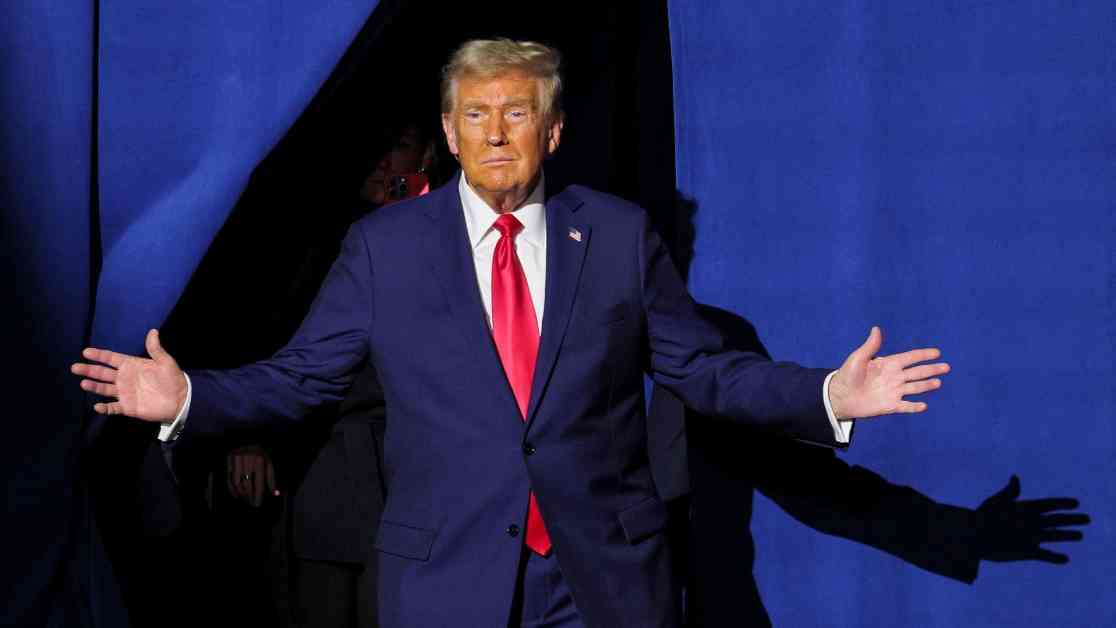Former President Donald Trump has proposed a tax reform plan that could potentially exempt around 93.2 million Americans from income taxes, according to CNBC’s analysis. Trump’s plan includes various income tax breaks, such as eliminating income tax on tips, Social Security benefits, and overtime pay. Additionally, he mentioned the possibility of providing tax exemptions for firefighters, police officers, military personnel, and veterans.
Trump aims to transition away from the income tax system and replace it with revenue generated from his proposed tariffs. He plans to impose a 20% universal tariff on all imports, with a 60% rate specifically for Chinese imports. However, tax experts believe that the revenue from tariffs would not be sufficient to offset the losses from eliminating income taxes. The math does not add up, as tariffs are unlikely to generate as much revenue as income taxes.
It is important to note that tariffs are typically paid by U.S. importers and are often passed on to consumers, particularly impacting low-income individuals who allocate a larger portion of their budgets to such costs. Trump’s proposed income tax exemptions would affect millions of Americans, including recipients of Social Security benefits, workers in tipped jobs, veterans, active-duty military personnel, law enforcement officers, and firefighters.
The Tax Foundation estimates that Trump’s tax exemptions on tips, Social Security benefits, overtime pay, and potentially for workers in certain occupations would reduce federal tax revenue by $2 trillion over the next decade. When factoring in Trump’s tariff plans and other tax cuts, the overall reduction in federal tax revenue is estimated to be around $3 trillion from 2025 to 2034.
However, analysts are skeptical about Trump’s plan to replace income taxes with tariffs, considering it to be unrealistic. Despite Trump’s promises to make his 2017 tax cuts permanent if re-elected, his tax overhaul would require a Republican majority in the House of Representatives, where tax bills originate. Currently, Republicans hold a slim majority in the House, and the outcome of the November election will determine the future of Trump’s tax reform proposal.
In conclusion, while Trump’s tax plans aim to provide relief to millions of Americans by exempting them from income taxes, the feasibility of replacing income taxes with tariffs remains uncertain. The potential impact on federal tax revenue and the complexity of the tax system raise questions about the viability of Trump’s proposed tax reforms. The upcoming election will play a crucial role in determining the fate of Trump’s tax overhaul.
















